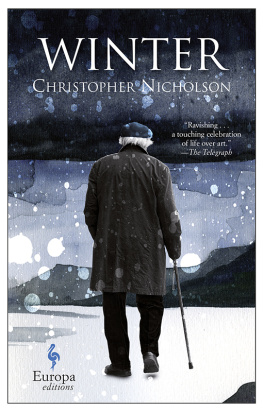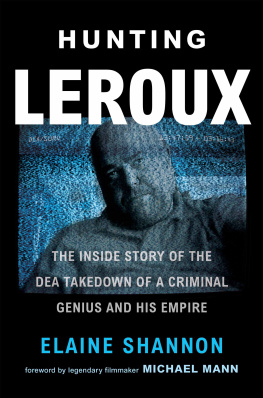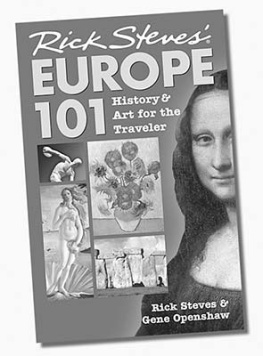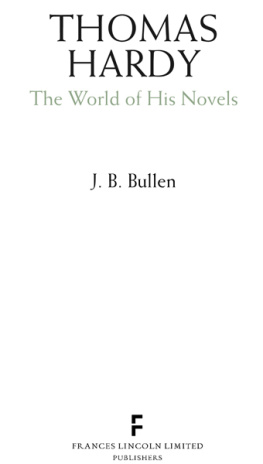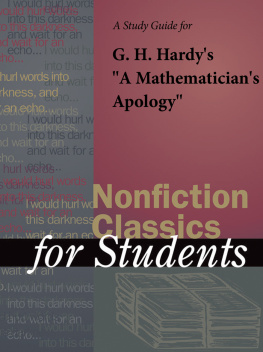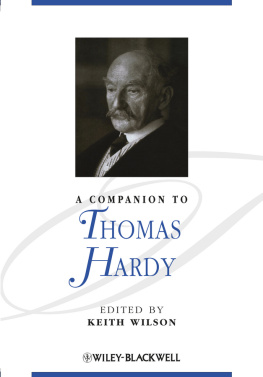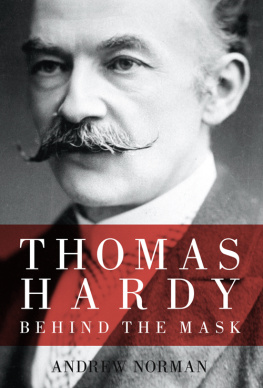To Kitty
(1958-2011)
P ART O NE
C HAPTER I
O ne of the old roads leaving a well-known county town in the west of England climbs a long slope and finally reaches a kind of open plain, a windy spot from which a wide prospect of the countryside is available. Fields of corn occupy the near and middle distance, while the rolling downs further off are grazed by numerous flocks of sheep. Much closer at hand there stands a clump of pines and other trees, the branches of which overhang a brick wall surrounding a dwelling of some substantial kind. Chimneys and a roof may be glimpsed especially in winter, but the wall is of sufficient height to obstruct the gaze of any pedestrians on the road, and the house remains as well hidden as if it were deep in a wood. Most wayfarers pass by scarcely aware of its existence. Yet a few curious souls, noticing a white entrance gate set in the wall, occasionally linger to ask themselves who may live in such a secluded, lonely place.
On a blue November dawn, not long before the present time, an old man might have been observed walking down the short drive that led from the house to the gate. He walked slowly, with a slight stoop, and carried a stick in his right hand. A small dog, a wire-haired terrier, accompanied him, snuffling at the vegetation on either side of the drive.
The drive was flanked by trees, and the depth of shadow beneath their boughs was such that the old man seemed to emerge by degrees out of a dim obscurity. He wore a tweed jacket, a wool tie and trousers of a nondescript colour, and on his head sat a wide-brimmed hat. When he reached the gate he halted, leaning on its top rail and scrutinising the world beyond. His moustache and eyebrows were pale, his face lined by a lifetime of experience and thought. While the down-turned nature of his mouth suggested a deeply ingrained scepticism, his eyes were keen and sharp and the wrinkles at each corner seemed to contain a distinct humour.
So, at least, he imagined himself. Not that bad for eighty-four, he thought, with a certain touch of vanity.
The road itself was empty, little traffic using it at this early hour on a Sunday. An erratic breeze blew, stirring the pines above his head. In the air hung a damp, resinous fragrance often encountered in wooded parts of the countryside in the last stages of autumn. This was, with the possible exception of spring, the old mans favourite season, the year quietly burning down and the steady passage of time made visible by the lowered sun and shortened days.
There was no sun today, or none visible, but the light was gradually increasing and the sombre blue of the air had turned to a dull grey as he retraced his steps. The drive curved around a thick shrubbery and brought the front of the house into view. A handsome brick edifice, it had been built to his own design, and he was as proud of its dark slate roof, imposing porch and low turrets as he was of some of his literary works. The piece of land on which it stood had formerly been nothing but a bare pasture exposed to the full force of the prevailing westerly wind, and the trees that now encircled and protected it had taken forty years to grow to their present height. Inspecting the garden always gave him considerable satisfaction, and he strolled here and there, occasionally turning his head to follow the progress of the dog or to listen to the song of some bird. The lawns were thick with freshly fallen leaves. After a time he retired indoors, leaving his stick in a corner of the porch and hanging his hat on a wooden peg.
The house was too far from the town to be supplied with electricity, and all artificial light came from oil-lamps. One such had been lit in the dining room, where the old man ate breakfast in the company of his wife, Florence. He had married her a decade earlier, his first wife having died unexpectedly. They sat at opposite ends of the table and by mutual agreement talked very little; early morning was never a good hour for conversation. It being a Sunday, the newspaper had not yet been delivered, and she seemed content to read a book while sipping her coffee. The room was rather chilly, and around her neck she wore a fox stole. The head of the fox, with its glass eyes, dangled over the book.
She had a round face, dark brown hair tied in a bun, and heavy-lidded eyes that gave a powerful impression of melancholy. The old man wished it could have been otherwise, for his own personality had melancholic tendencies which would perhaps have adjusted to some counterbalancing force. Still, one was what one was. His outlook on Life, his essential philosophical beliefs, had been formed long ago. At his age he could hardly expect himself to change.
He drank tea, and ate bacon and toast. The dog sat by his side, saliva spooling from the edges of its mouth, uttering polite whines. Wait, Wessex, the old man chided. Now now. Where are your manners? Stop begging. But the begging was a regular part of breakfast, and as happened every day the whines grew more urgent and insistent until the old man at last dangled the bacon rinds above the dogs nose. Gently. Gently. Dont snap. There.
Once he had finished he wiped his fingers on his napkin and drained his tea. As he rose from the table Florence looked up with an anxious expression and appeared on the point of speech, but then chose to remain silent. The old man was relieved: her anxieties were almost always unnecessary, and at this hour of the day his mind was on his work. But, out of kindness, he felt obliged to say something.
How are the hens laying? he asked.
The abruptness of his inquiry seemed to startle her, and it took a moment before she gave the reply that they were laying well. I think they are laying well, she corrected herself, as if experiencing a degree of uncertainty on the matter. But the old mans interest in the hens was limited and he was disinclined to be drawn into further talk. He nodded and left her, the dog trotting at his heels.
Adjacent to the dining room lay the hall. It was simply furnished: a grandfather clock stood and ticked by the side of a flight of stairs, a black telephone gleamed on a small table, and a barometer in a mahogany case hung on one wall. The old man went up the stairs, turned right along a short corridor and entered the study which was his daily refuge, even on Sundays. Wrapping a woollen shawl around his shoulders he settled at his desk, while the dog curled up on a rug.
The observance of an unvarying routine was one that the old man valued highly and that, he believed, contributed in large measure to his productivity as a writer. For many years he had begun each day with a walk around the garden, in the belief that the fresh air invigorated his brain; likewise, for the same indeterminate number of years, he had withdrawn after breakfast to his study, where he remained for the whole of the morning and the greater part of the afternoon. The chair on which he now sat had served him for much of his life, and the worn condition of its tapestry seatthe once bright floral design now chiefly bare sackingbore testament to the thousands of hours in which he had been engaged in literary endeavour. The desk itself had also done long service, and despite its inanimate nature stood in the category of a friend. The shawl draped over his shoulders he held in the same affectionate regard.
When seated here, pen in hand, he did not feel old. Physically, he was aware how much he had declinedhe no longer felt safe on a bicycle, and it was many years since he had dancedbut in his mind he felt as strong and vigorous as he had done in his youth. Yet he was aware that he did not always achieve very much. This was particularly so in the last few months; some days he made no progress at all, and spent long periods staring at a blank page or making inconsequential notes. However, routine was routine, and if he did not try to work he would achieve nothing at all. Behind him lay a string of novels and hundreds of poems, and to break with the habits of a lifetime merely because he happened to have reached a certain age was impossible. Even if he had received some authoritative assurance that this day was his last on the planet, he would have spent it in the same fashion, writing as best he could. Perhaps he might have drunk a glass of champagne at lunchtime, and perhaps if the weather had been good he might have taken a short stroll; but it would not have been in his nature to have done anything out of the ordinary. When it came to a consideration of possible ways of drawing to a close his earthly sojourn, the thought of being at his desk, with the ink drying on the last words of a final poem, was an altogether agreeable one.
Next page
